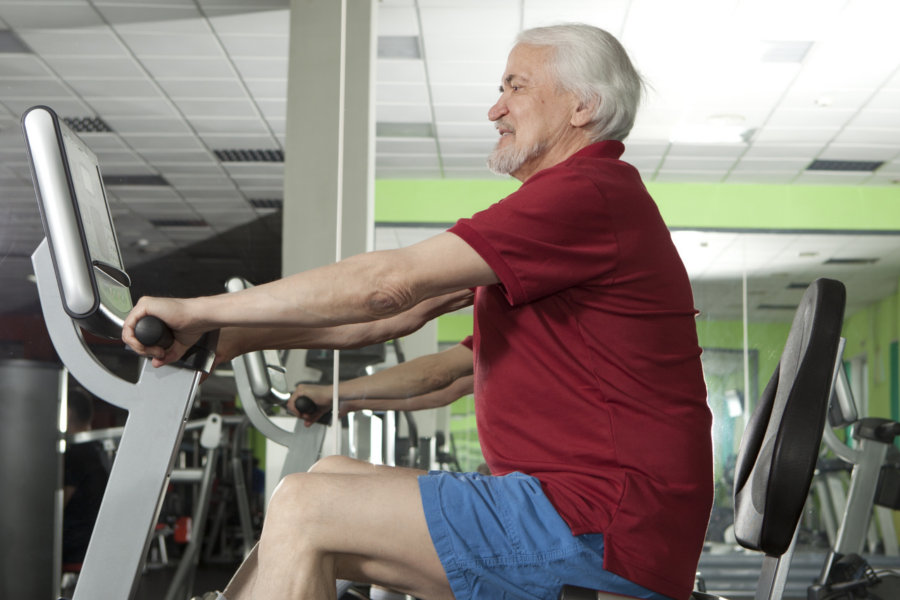Introduction
How old do you have to be to go to the gym: Exercise and fitness are vital parts of a healthy lifestyle, and many people begin going to the gym early in life. However, different gyms and fitness centers may have very varying age limits for memberships. Young people can participate in physical activities in a safe and efficient manner if they are aware of these needs.
General Age Requirements for Gyms
Age limits on gym memberships are put in place to protect members’ health and safety, especially for younger people who may be more likely to get hurt or abuse the equipment. Here’s a thorough examination of how various gym kinds manage age restrictions:
Local Gyms and Fitness Centers
Local gyms often have flexible age policies compared to larger chains. Typically, these gyms allow teenagers as young as 13 to join with parental consent. However, they usually impose restrictions on the types of equipment and classes available to younger members. For instance, teens might be restricted from using certain heavy weights or advanced fitness machines until they reach a higher age or demonstrate appropriate fitness levels.
National Chains
National gym chains such as Planet Fitness, Gold’s Gym, and 24 Hour Fitness generally have stricter age policies. Most of these chains require members to be at least 16 years old to use the gym facilities independently. Some chains might offer special programs or memberships for younger individuals, often under parental supervision or with specific age-related guidelines.
Specialized Gyms
Different age limitations may apply to gyms that specialize in particular sports, such gymnastics, martial arts, or rock climbing. For instance, if a child is accompanied by an adult or legal guardian, several climbing gyms permit them to attend sessions as early as seven. In a similar vein, martial arts schools frequently accept younger pupils but could want parental approval and age-appropriate instruction.
Teenagers and Gym Memberships
Age Restrictions by Gym Type
How old do you have to be to go to the gym: Different types of gyms have varying age requirements, and it’s important to understand these to choose the right facility for teenagers:
Standard Fitness Gyms: Many standard fitness gyms require members to be at least 16 years old. However, some gyms offer memberships to younger teens, often between 13 and 15, with specific restrictions on equipment usage and class participation. These gyms typically focus on general fitness and may provide introductory fitness classes designed for younger members.
Family-Friendly Gyms: Gyms that cater to families might have more inclusive age policies. These gyms often feature child-friendly equipment and fitness classes designed for different age groups, including young children. Memberships for younger kids are more common in such environments, where the focus is on creating a fun and engaging fitness experience for the whole family.
Sports and Specialized Gyms: For gyms specializing in sports or specific fitness activities, age requirements can be more flexible. These gyms often offer programs tailored to young athletes, including training sessions and classes that align with their developmental stages. The focus is usually on skill development and proper technique rather than general fitness.
Parental Consent and Supervision
For members under the age of 18, the majority of gyms demand a parental authorization form or waiver. In order to make sure that the young member and the gym are both aware of the safety procedures, this form often contains the rules and instructions for using the gym. Furthermore, in order to give supervision and assistance, several gyms require that younger members work out with a parent or guardian present.
Benefits of Early Gym Membership
How old do you have to be to go to the gym: Establishing a fitness regimen early in life might have several advantages for one’s physical and mental well-being. Here are a few benefits:
Improved Physical Fitness
Strength, flexibility, and cardiovascular fitness are all enhanced by regular exercise starting at a young age. Engaging in age-appropriate workouts helps build the foundation for a healthy lifestyle and prevent concerns like obesity and poor posture.
Establishing Healthy Habits
Early exposure to fitness can foster a positive attitude towards exercise and health. Developing a routine early on helps instill lifelong habits, making it easier to maintain an active lifestyle as an adult.
Social Interaction
Young people can engage with peers, take part in group classes, and form connections in the social setting that gyms offer. This social component can increase motivation and add enjoyment to working out.
Skill Development
For teens interested in sports or specific fitness activities, early gym membership can aid in skill development. Learning proper techniques and training methods can improve performance in their chosen sport or fitness activity.
Safety Considerations for Young Gym-Goers
Ensuring safety is crucial when young individuals start going to the gym. Here are some key considerations to keep in mind:
Proper Training
Before using gym equipment, it’s essential that young members receive proper instruction. Many gyms offer introductory classes or personal training sessions tailored to beginners. Learning how to use equipment safely and effectively helps prevent injuries and ensures a positive workout experience.
Age-Appropriate Equipment
Gyms should provide equipment that is suitable for the age and physical development of younger members. Heavy weights, complex machines, and advanced exercises may be unsuitable for younger individuals and could pose risks. Look for gyms that offer age-appropriate equipment and exercises.
Supervision
Young gym patrons should be supervised by parents or guardians to make sure they follow safety regulations. Active supervision guarantees that young participants are utilizing equipment correctly and helps prevent accidents. Particularly for younger kids, many gyms demand a parent or guardian to be present.
Health Screening
Before starting a new fitness program, it’s advisable for young people to undergo a health screening. This helps identify any potential health issues or limitations that might affect their ability to participate in certain exercises.
Tips for Teens Starting at the Gym
How old do you have to be to go to the gym: The following advice can help teens who are new to the gym have a more pleasurable and productive experience:
Start Slowly
Start out with easy workouts and work your way up to more challenging ones. This method lowers the chance of damage and helps prevent overexertion. Giving the body time to adjust to new activities is crucial.
Set Goals
Establishing fitness goals can help maintain motivation and track progress. Whether aiming to improve strength, endurance, or specific skills, setting clear objectives can make workouts more focused and rewarding.
Seek Guidance
Take advantage of personal trainers or fitness classes to learn proper techniques and receive personalized advice. Trainers can provide valuable guidance on creating an effective workout plan and using equipment safely.
Stay Hydrated and Eat Well
For general health and fitness, proper diet and hydration are essential. Drink lots of water before, during, and after workouts, and make sure your diet is well-balanced to encourage physical activity.
Listen to Your Body
Observe how your body reacts to physical activity. Any fitness regimen must include rest and recuperation. It’s critical to deal with pain and discomfort as soon as possible and, if required, seek advice from a healthcare practitioner or fitness expert.
Conclusion
How old do you have to be to go to the gym? Understanding the age requirements and safety considerations for gym memberships helps ensure a positive and productive fitness experience for young individuals. By adhering to age guidelines and focusing on proper training, teenagers can enjoy the numerous benefits of gym membership and develop healthy habits that last a lifetime.
Frequently Asked Questions
Q:1 What is the minimum age to join a gym?
A:1 The minimum age to join a gym varies. Many gyms allow teenagers as young as 13 or 14 to join with parental consent, though some gyms require members to be at least 16 years old.
Q:2 Do gyms offer special programs for younger members?
A:2 Yes, many gyms offer specialized programs or classes designed for younger members. Family-friendly gyms and sports-focused facilities often have age-appropriate fitness options.
Q:3 Is it safe for teenagers to use gym equipment?
A:3 With proper instruction and supervision, it is generally safe for teenagers to use gym equipment. Gyms should provide age-appropriate equipment and ensure that young members receive guidance on safe usage.
Q:4 Can teenagers join a gym without parental consent?
A:4 Most gyms require parental consent for members under 18. It’s important to check with the specific gym to understand their policies and requirements.
Q:5 Are there benefits to starting a gym routine at a young age?
A:5 Yes, starting a gym routine early can improve physical fitness, establish healthy habits, and offer social and skill development opportunities. Engaging in regular exercise from a young age contributes to overall health and well-being.
See More



